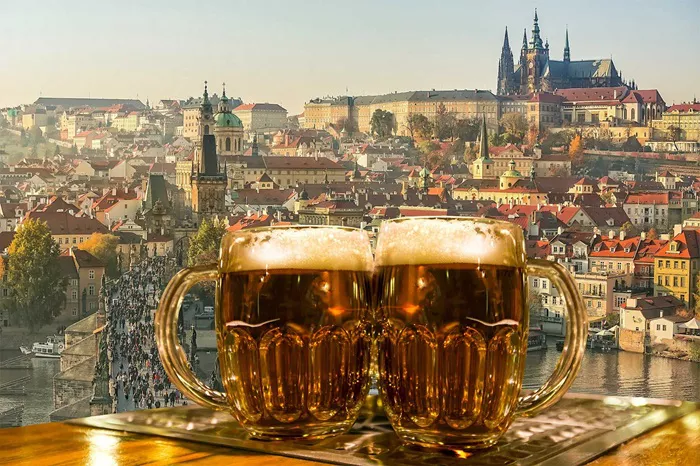Carlsberg, one of the world’s leading brewers, is making strides in sustainable agriculture by championing regenerative farming methods in its home country of Denmark. In collaboration with agricultural cooperative DLG and malting company Viking Malt, the company has begun sourcing malt barley grown using regenerative practices, marking a significant milestone toward its ambitious goal of sourcing all raw materials regeneratively by 2040.
What is Regenerative Agriculture?
Regenerative agriculture refers to a farming approach that focuses on improving soil health, enhancing biodiversity, and optimizing water cycles, all while maintaining high crop yields. For Carlsberg’s barley suppliers, these practices include minimal tillage to prevent soil disruption, crop rotation over five harvest cycles, and reduced use of synthetic fertilizers and pesticides. Additionally, keeping soil covered for much of the year is a core tenet of this method, which aims to restore and preserve the land for future generations.
Early Success and Future Plans
Carlsberg’s initial regenerative barley harvest in Denmark was a promising start. Spread across 100 hectares on two farms in Zealand—the island that is home to Copenhagen—the harvest produced approximately 500 tonnes of malt. This yield is sufficient to brew around 3.3 million liters of beer, which is more than half of Belgium’s total annual beer consumption.
The malt will be used in the creation of a special edition beer, set for release in 2025, that will be brewed entirely from regeneratively grown ingredients. Over time, the remaining barley will replace conventional crops in Carlsberg’s flagship Pilsner, further integrating sustainability into the company’s primary product.
Environmental Impact and Strategic Importance
Peter Haahr Nielsen, CEO of Carlsberg Denmark, emphasized the environmental benefits of this initiative, pointing out that nearly 24% of Carlsberg’s CO2-equivalent emissions in Denmark come from agriculture, which provides the raw materials for its beverages. “We see great potential in regenerative agriculture to reduce CO2 emissions and contribute positively to biodiversity,” Nielsen said.
This move aligns with Carlsberg Group’s broader sustainability framework, Together Towards ZERO and Beyond, which aims to minimize carbon emissions, water usage, and overall environmental impact. Similar regenerative agriculture projects have already been initiated in the UK, France, and Finland, making Denmark the latest country to adopt this sustainable approach.
Overcoming Challenges and Building Partnerships
One of the main obstacles to regenerative farming is the lack of standardized practices and certifications. Carlsberg is addressing this gap by working with Danish agricultural consultancy Agrovi to develop tailored guidelines for regenerative farming. The collaboration between Carlsberg, DLG, and Viking Malt underscores the importance of industry partnerships in driving change.
Bøje Kjær, Executive Vice President of DLG, emphasized the business potential of regenerative crops, stating, “There is huge potential for regenerative crops, and this transformation is critical for the future of agriculture.” He also called for more food companies to adopt similar practices, recognizing the shared value of sustainability.
Enhancing Agricultural Resilience
Beyond its environmental benefits, regenerative farming is also seen as a way to build resilience in agriculture, especially as climate change poses increasing challenges to farmers. By improving soil health and water retention, farms can better withstand extreme weather events, ensuring a steady and high-quality supply of barley for brewing.
Carlsberg has assured consumers that regenerative barley meets the same high standards for quality and flavor as conventionally grown barley, so there will be no compromise on taste. The company remains committed to expanding its regenerative practices, not only within its own supply chain but across the broader food and beverage industry.
Simon Boas Hoffmeyer, Carlsberg’s Senior Director of Sustainability and ESG, stated, “To scale up the impact of regenerative farming, we need more value chain partners and crops to join the transition.” Carlsberg’s commitment to sustainability, paired with its collaborative approach, sets a strong example for the future of agriculture in Denmark and beyond.
By aligning its environmental goals with commercial strategies, Carlsberg hopes to transform its supply chain and inspire broader industry adoption of regenerative farming practices, paving the way for a more sustainable future.
You Might Be Interested In:


